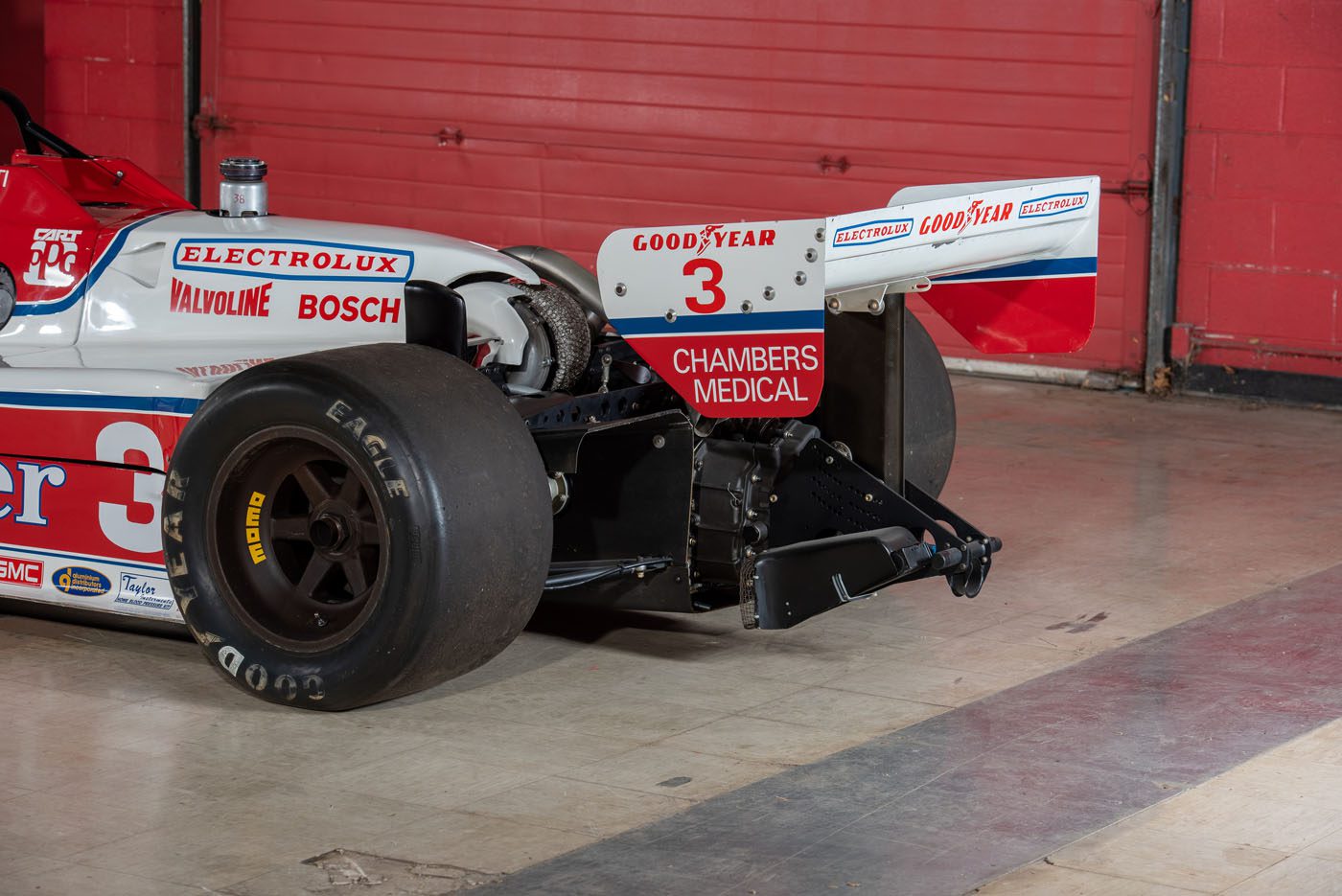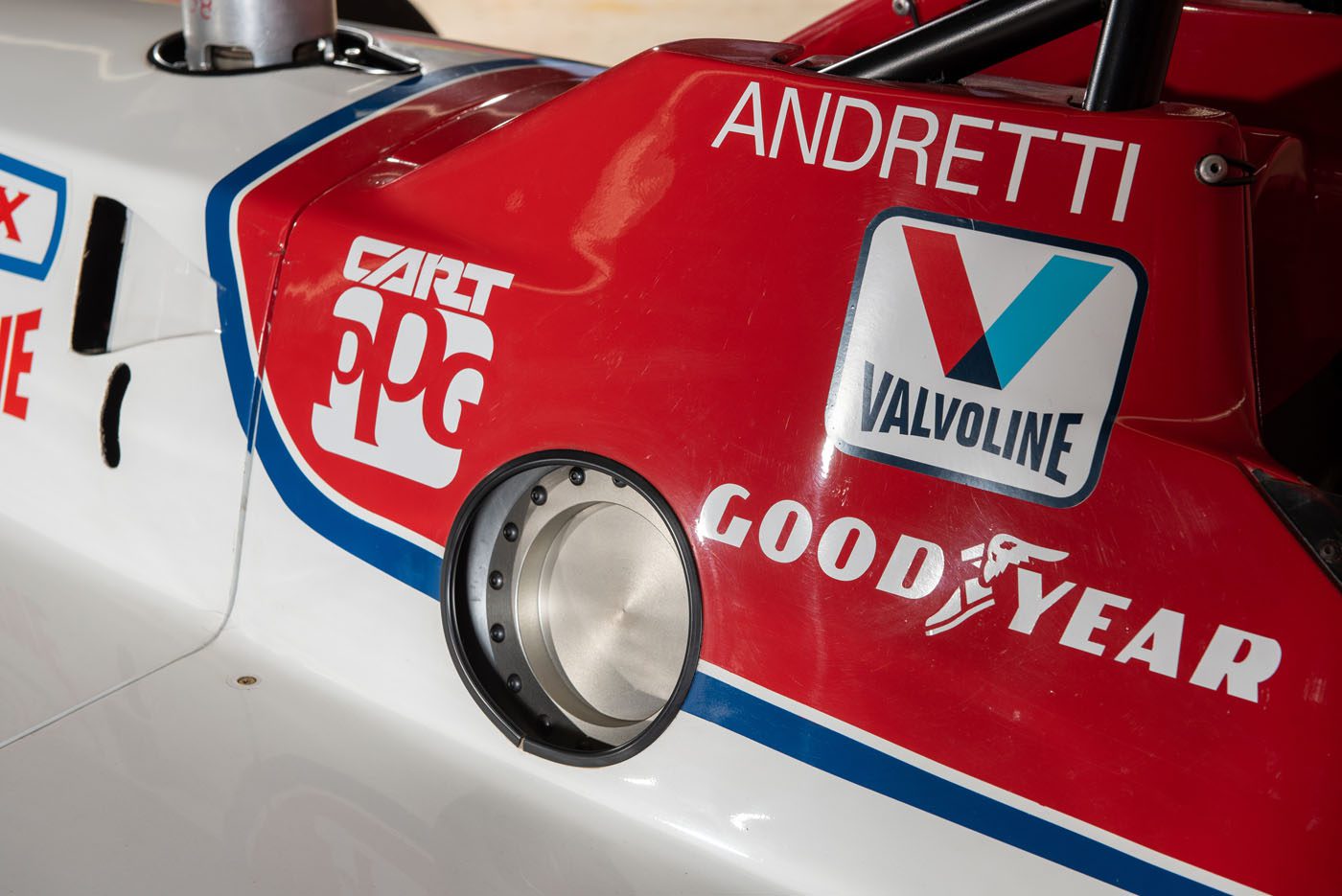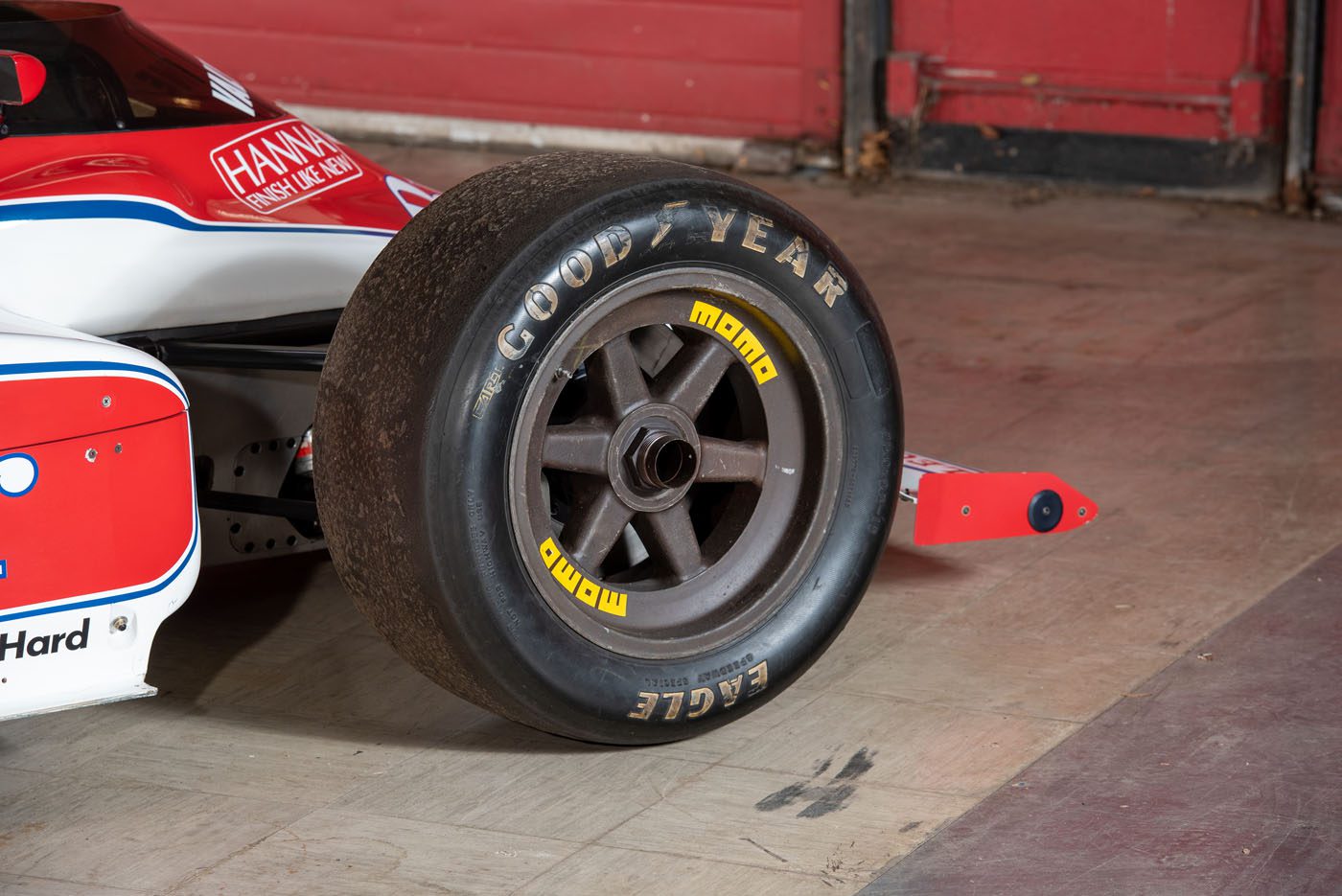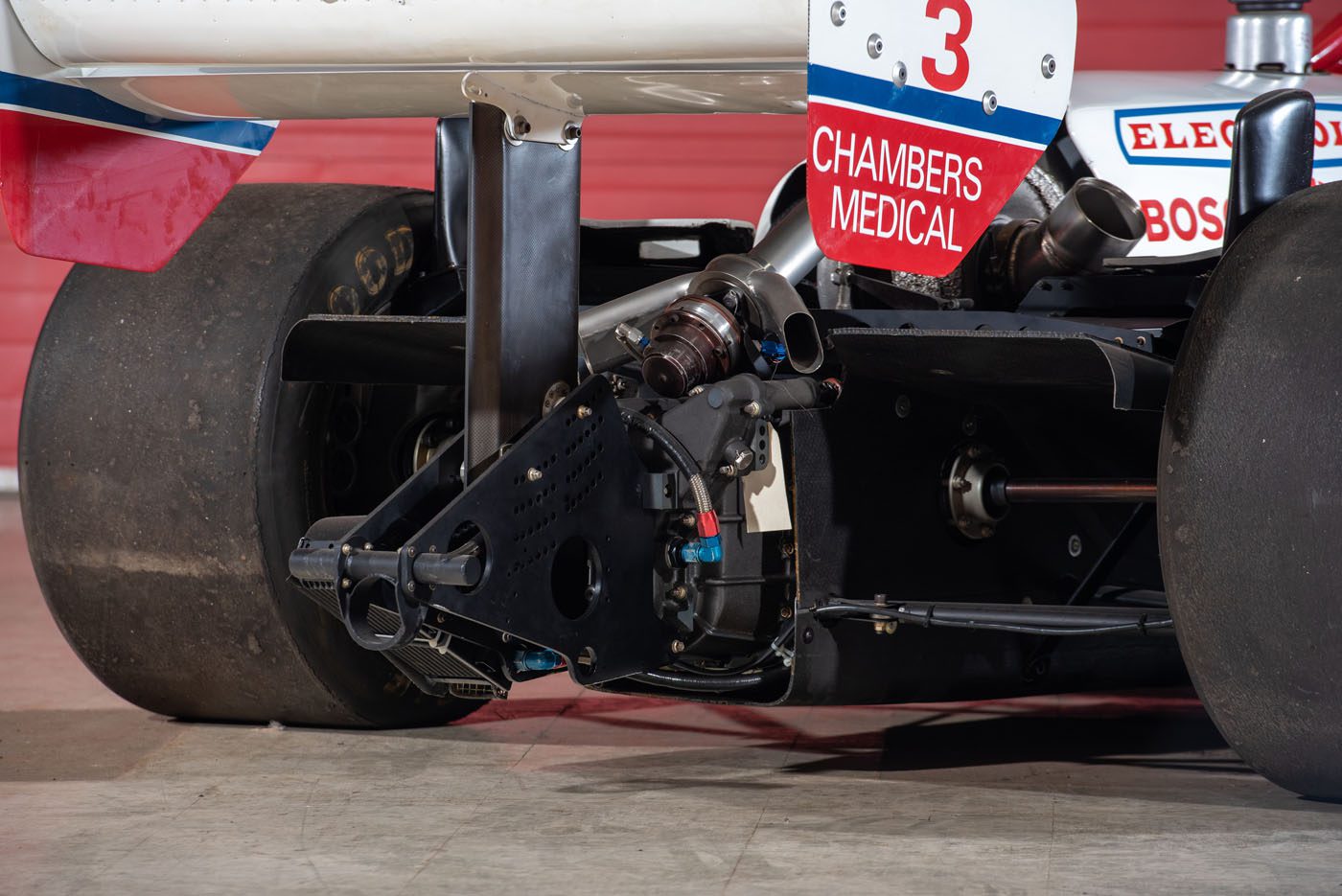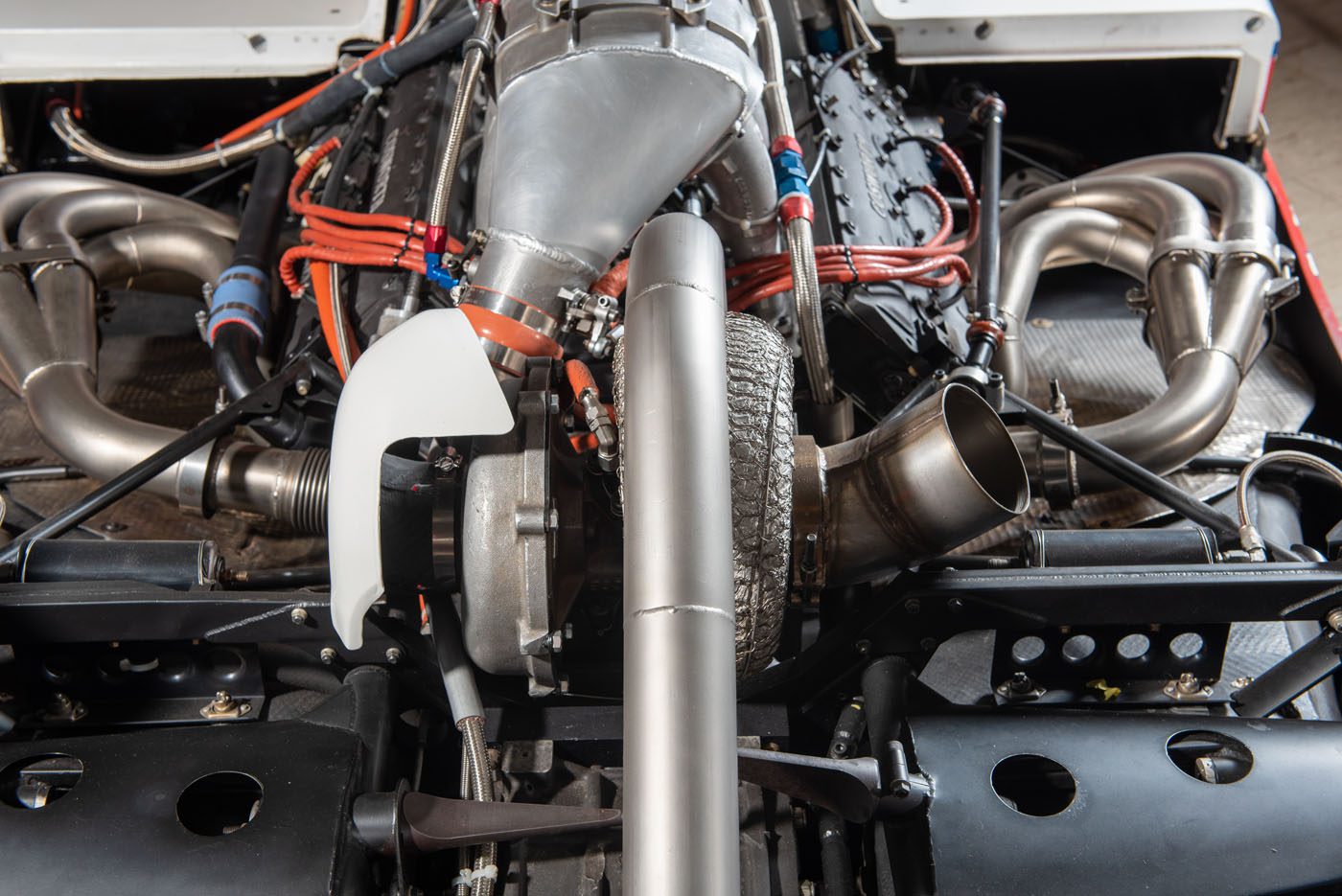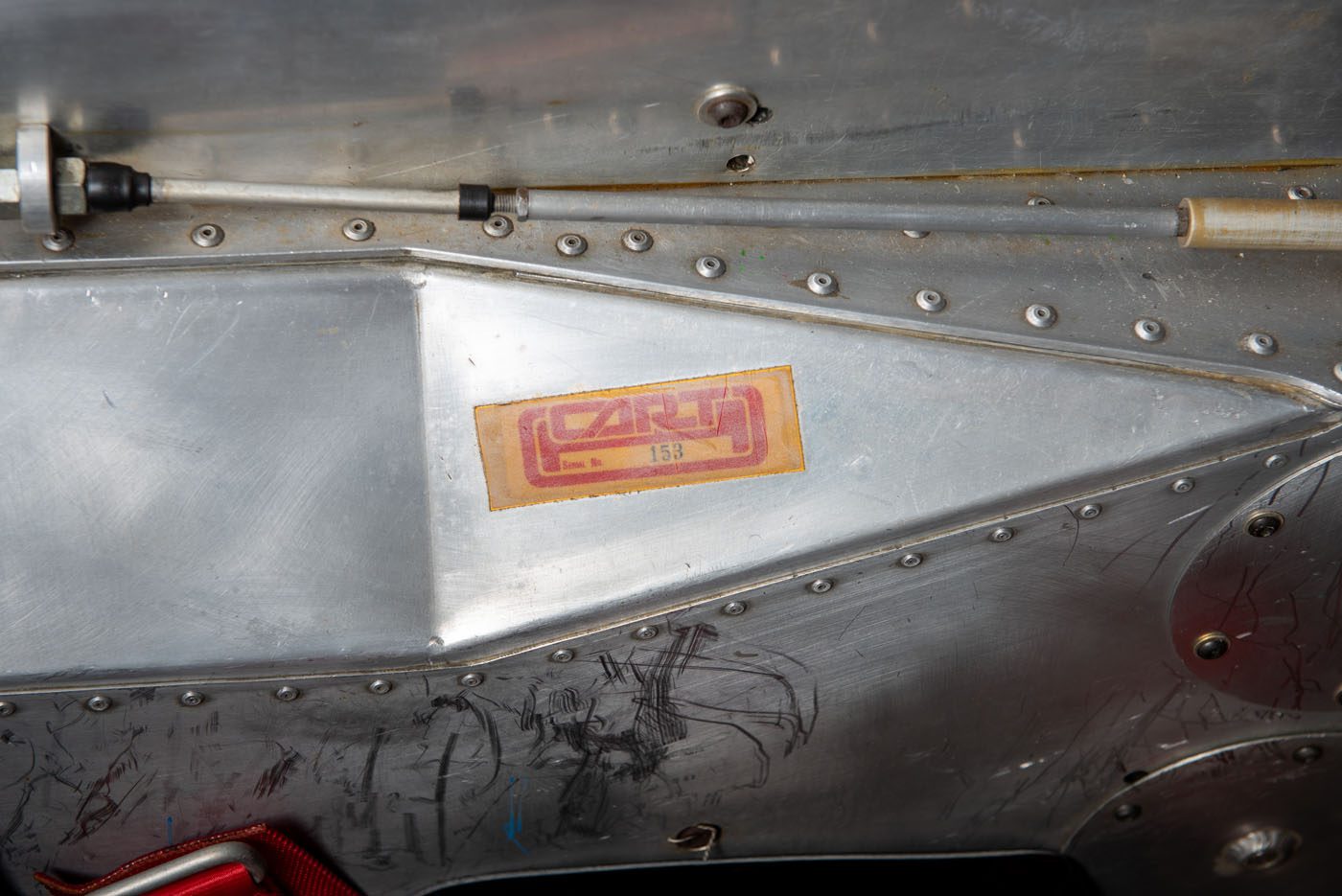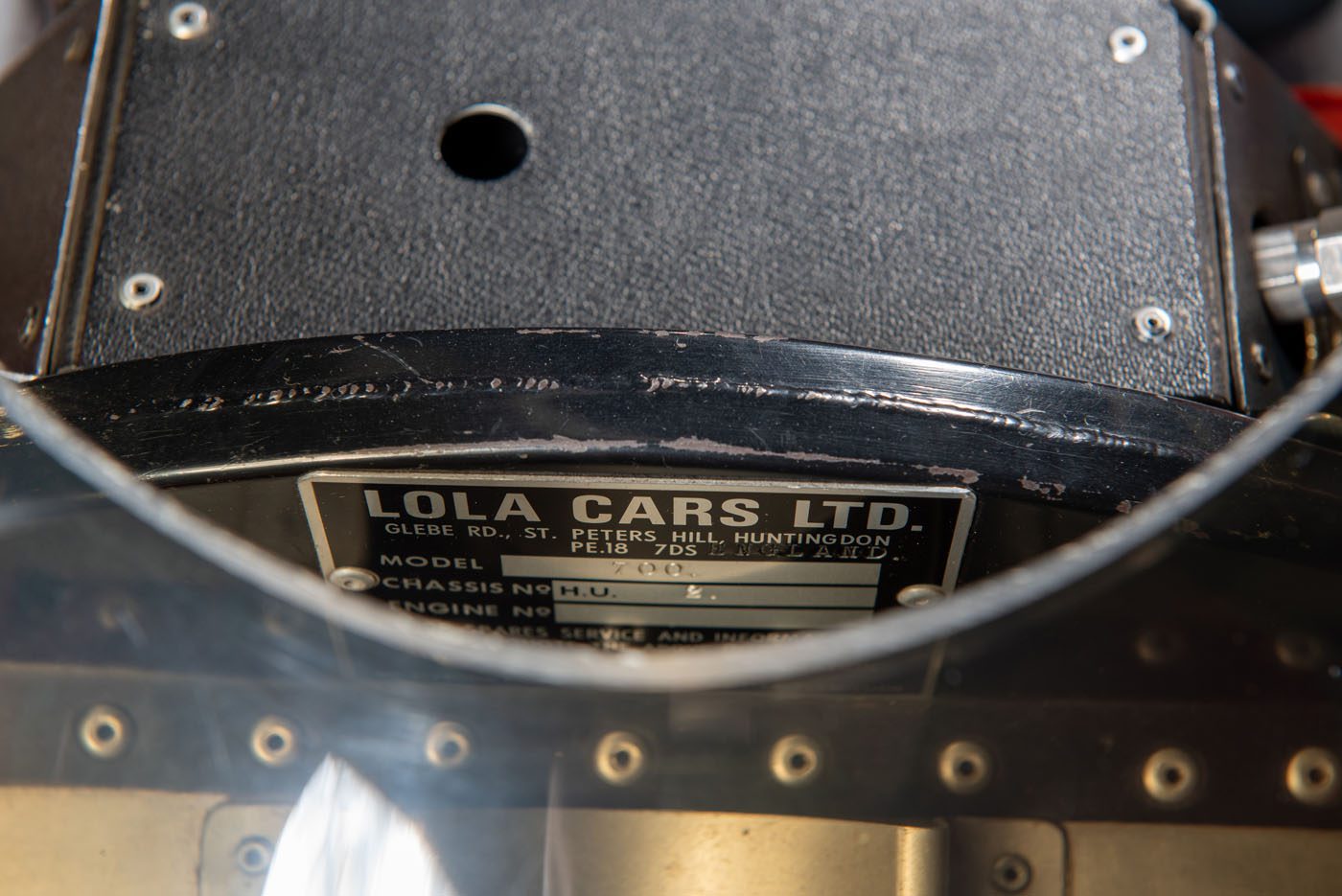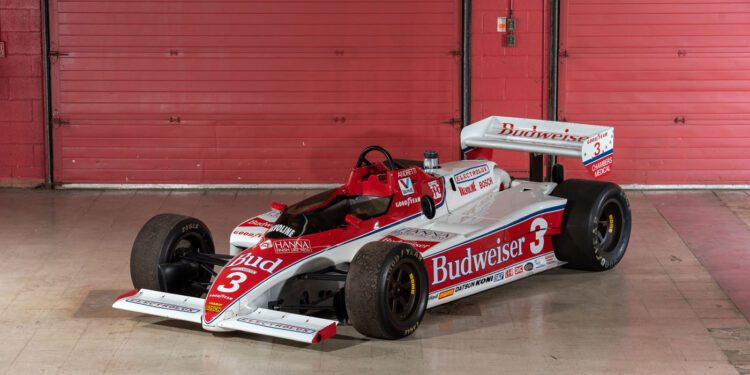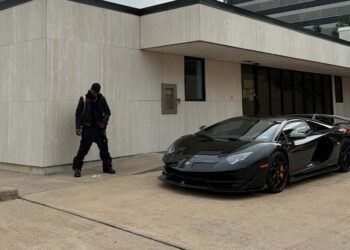Presented by RM Sotheby’s.
The first car run by Newman/Haas Racing.
THE ORIGINS OF NEWMAN/HAAS
The unlikely duo of Chicago businessman Carl Haas and movie star/racecar driver Paul Newman began as fierce competitors within the CanAm series. Haas had experienced great success winning the championship four years in a row between 1977–1980, and he was the North American distributor of Lola race cars. As such, Carl supplied cars to Newman—who claimed they typically arrived late and overweight.
Despite their less-than-cordial relationship, one day Haas called Newman and asked if he wanted to go Indy Car racing together. Paul immediately denied the request, but Carl persisted and claimed he could get Mario Andretti behind the wheel. Andretti had known of Haas, and greatly respected his dedication to the sport and the way in which he ran his team. A deal was stuck in October 1982, and the triumvirate was formed.
While Lola had previously achieved great success in the category, famously winning the Indianapolis 500 in 1966 with Graham Hill and in 1978 with Al Unser Sr., the firm had no current design in production when Newman/Haas was established. With the first race of the season occurring just six months ahead in March, there was limited time to produce a brand-new design from scratch. The original design of the car happened in a matter of weeks, and when it finally arrived in the United States, the team was less than impressed.
Thanks to Andretti’s experience and Haas’ determination to see the project through, and with the insight of engineer Tony Cicale and chief mechanic Darrell Soppe, the car was greatly revised over the following months. New parts were added, including a single-piece carbon underwing, while a strengthening regime increased the performance of the car further.
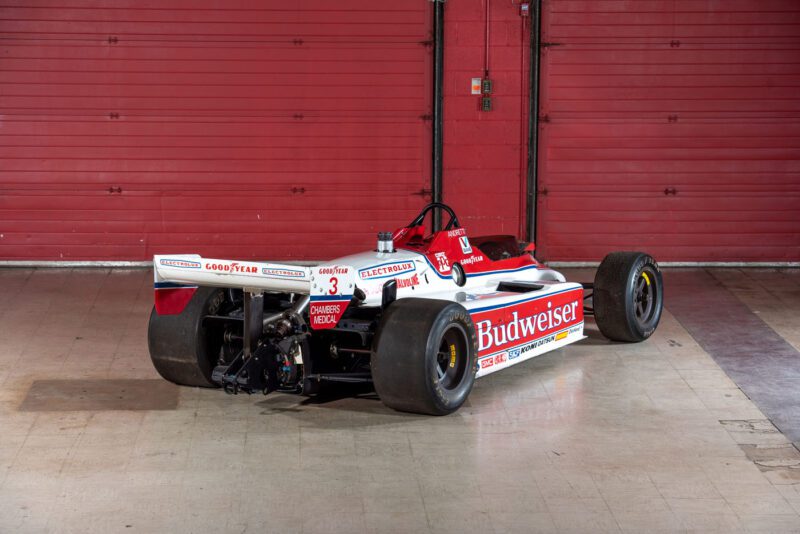
Andretti secured a first pole position with the updated machine, contesting The Cleveland 500 at Burk Lakefront Airport. The same feat was achieved at Road America in Elkhart Lake, Wisconsin. giving the team its first race victory. The season concluded with an additional victory at the Caesars Palace Grand Prix and three podium finishes.
Finishing 3rd in the championship, Andretti, Haas, and Newman proved they were capable of success with underperforming equipment. The groundwork had been laid, and a decade of dominance followed with 42 wins out of 160 races by 1993. Indy Car had a new powerhouse.
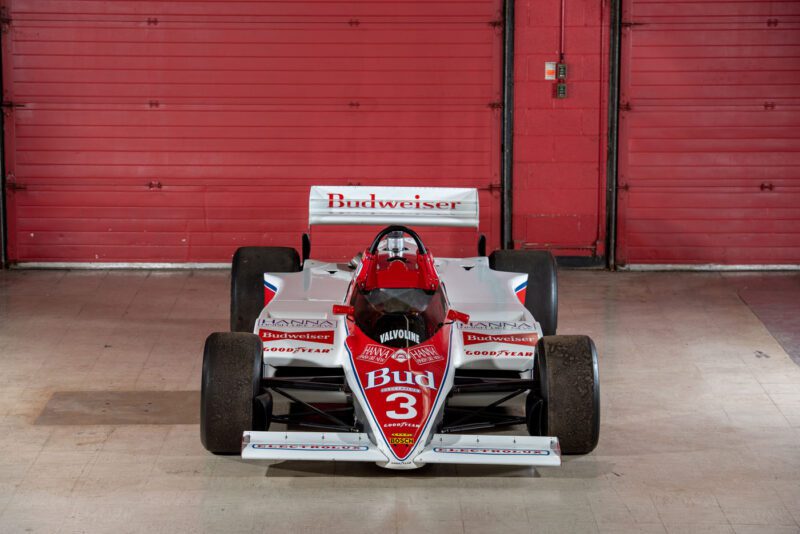
THE LOLA T700
Just three examples of the Lola T700 were produced, with two going to the newly formed Newman/Haas team and the third shipped to the Armstrong Moulding team for Steve Krisiloff to run the Indianapolis 500.
A skirted ground effect car, The T700 is composed of an aluminum honeycomb monocoque structure with a glass-reinforced plastic body and a carbon fiber rear wing. In order to maintain clean airflow through the venturis, the rear suspension utilized outboard springs and dampers operated by pushrod and reversed twin wishbones. In addition, a completely novel “roll control link” system, which was believed to be lighter and simpler, took the place of conventional anti-roll bars. Up front featured pull rod-operated front suspension with inboard springs and dampers. Four-piston A.P. hydraulic brakes with vented discs were responsible for bringing the car to a stop. A Cosworth-Ford DFX turbocharged V-8 engine served as the heart of the racecar, and was reported to produce approximately 700 horsepower with alcohol fuel.
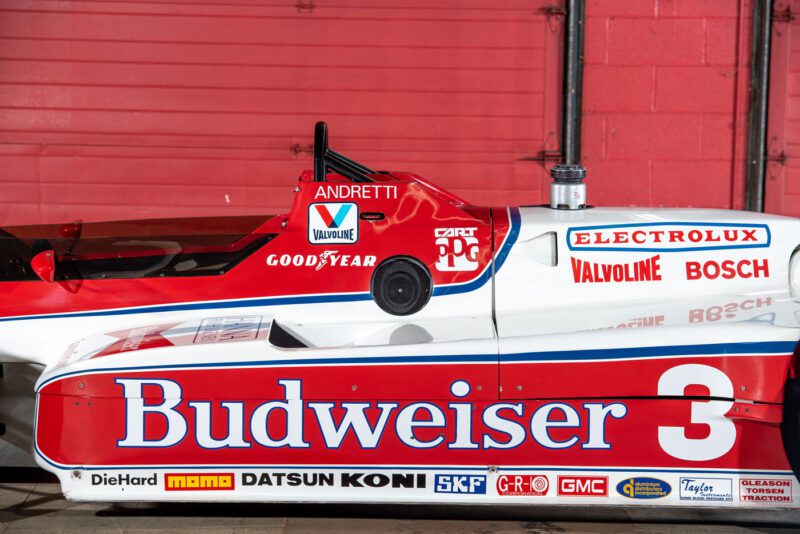
Being the very first Newman/Haas racecar, the T700 presents as an incredibly significant piece of Indy Car history. It laid the foundations for one of the most dominant motorsport teams of the 20th century, and it is additionally responsible for continuing the Andretti legend well into the 1980s. With so few built, and the unique history of this particular chassis, it represents a one-of-a-kind opportunity for a dedicated collector.
This racecar will be offered without reserve at RM Sotheby’s The House That Newman/Haas Racing Built sale, taking place 29 October. View more and register to bid online at rmsothebys.com today.
